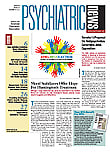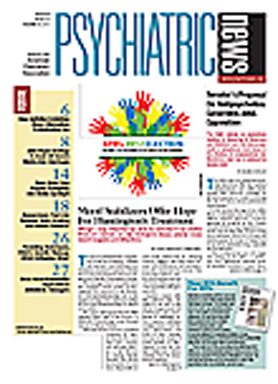Formal training in parental discipline strategies has proven effective in improving the behavior of young children at risk for developing attention-deficit/hyperactivity disorder (ADHD), according to a new report from the U.S. Department of Health and Human Services’ Agency for Healthcare Research and Quality (AHRQ).
The 366-page report, a comparative effectiveness review prepared for AHRQ’s Effective Health Care Program by the McMaster Evidence-Based Practice Center in Hamilton, Ontario, sought to answer three key questions:
Among children younger than age 6 with ADHD or disruptive behavior disorder, what are the effectiveness and adverse-event outcomes following treatment?
Among those aged 6 or older with ADHD, what are the effectiveness and adverse-event outcomes following 12 months or more of follow-up treatment?
How do underlying prevalence of ADHD and rates of diagnosis and treatment for ADHD vary by geography, time period, provider type, and sociodemographic characteristics?
In investigating the treatment of children under age 6 with disruptive behavior disorders, a team of researchers led by Alice Charach, M.D., M.Sc., of the University of Toronto’s Hospital for Sick Children pooled results from eight “good-quality” studies of parent behavior training (PBT) with a combined total of 424 participants.
The researchers found a high level of evidence supporting the effectiveness of such interventions in limiting the disruptive behavior of preschoolers, including those with symptoms of ADHD.
The analysis further suggested that the benefits of PBT carry little to no risk and are often maintained for a period of up to two years. However, a high paren tal dropout rate from PBT programs was observed in the studies analyzed, which the researchers suggested may prove a significant barrier to the success of PBT.
According to the authors, there are primarily four standardized PBT programs that have been developed over the past 25 years—the Positive Parenting Program (Triple P), the Incredible Years parenting program, Parent-Child Interaction Therapy, and the New Forest Parenting Program. These programs are designed to help parents manage their child’s problem behavior with rewards-based discipline strategies rather than punishment.
The researchers identified only one “good-quality” study on the use of methylphenidate in improving the behavior of children under age 6. Analysis of the Preschool ADHD Treatment Study involving 114 preschoolers showed that while methylphenidate is effective and generally safe in the treatment of ADHD symptoms, there has been no long-term follow-up of the study subjects.
Louis Kraus, M.D., chief of child and adolescent psychiatry at Rush University Medical Center in Chicago, told Psychiatric News that the first prong of this research supports current practice for the treatment of ADHD in preschoolers.
“Whether with preschool children or older, we will almost always begin treatment by attempting behavioral interventions,” said Kraus. “Not uncommonly, treatment will require a combination of behavioral management in association with stimulant or nonstimulant pharmacologic interventions. ADHD often has a comorbid diagnosis too. As such, treatment can often become much more complex.”
In evaluating the effectiveness of medication in treating the ADHD symptoms of those older than age 6, the researchers encountered a similar dearth of what they called “good-quality” studies that included untreated controls and were not largely funded by industry. And while both methylphenidate and atomoxetine (sold as Strattera) were found to be generally safe and effective for improving behavior based on the analysis of one study per each medication, the researchers noted that their effects beyond 12 to 24 months have yet to be well studied.
Additional investigations revealed that both medication alone and the combination of medication and behavioral treatment are more effective in treating symptoms of ADHD and oppositional defiant disorder than psychosocial or behavioral interventions alone, particularly during the first two years of treatment of boys aged 7 to 9 with the combined type of ADHD.
Analysis addressing the researchers’ third key question demonstrated that the underlying prevalence of ADHD is less variable than the rates of diagnosis and treatment of the mental illness. Among their findings across demographic lines, the researchers noted that while children of lower socioeconomic status are more often diagnosed with ADHD than children of higher socioeconomic status, the latter group are more likely to receive medications for treatment of the condition.
The researchers also found that family medicine practitioners in many jurisdictions reported “significant pressure” from parents and teachers to prescribe stimulant medications.

